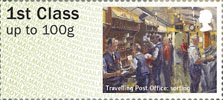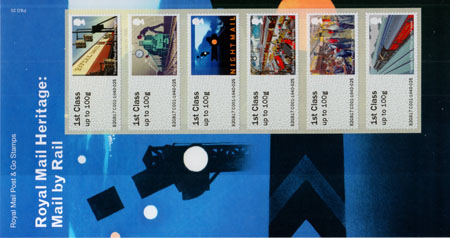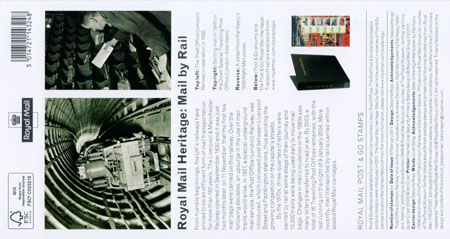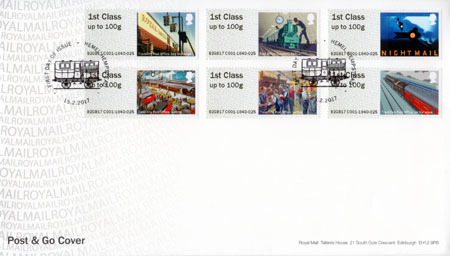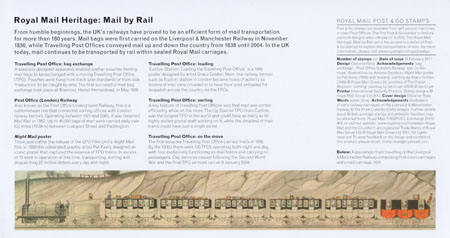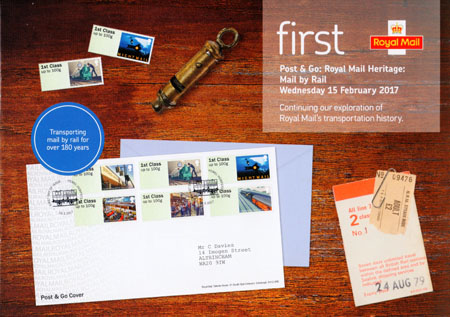Post & Go : Royal Mail Heritage : Mail by Rail
2017 (February 15 2017)Stamps
Travelling Post Office: Bag Exchange
1stImage preview by Royal Mail
A specially designed apparatus enabled leather pouches containing mail bags to be exchanged with a moving Travelling Post Office (TPO). Pouches were hung from track-side standards or train-side ‘traductors’ to be caught by nets. The first successful mail-bag exchange was in 1838.
Post Office (London) Railway
1stImage preview by Royal Mail
Also known as the Post Office Underground Railway, this subterranean line connected sorting offices with London railway termini. Operating between 1927 and 2003, it was renamed Mail Rail in 1987. Up to 40,000 mail bags were carried daily between Liverpool Street and Paddington over 6.5 miles (10.5km).
Night Mail: Poster
1stImage preview by Royal Mail
Three years after the GPO Film Unit’s Night Mail film was released, in 1939 graphic artist Pat Keely designed an iconic poster that captured the essence of TPO trains. In excess of 70 were in operation at this time, transporting, sorting and despatching 27 million letters every day and night.
Travelling Post Office: Loading
1stImage preview by Royal Mail
‘Euston Station: Loading the Travelling Post Office’ is a 1948 poster designed by artist Grace Golden. Main-line railway termini such as Euston station in London became hives of activity as dozens of mail vans crowded in to have their post unloaded for despatch across the country via the TPOs.
Travelling Post Office: Sorting
1stImage preview by Royal Mail
A key feature of Travelling Post Offices was that mail was sorted while on the move. The Up Special TPO from Carlisle was the longest TPO in the world and could have 50 highly skilled postal staff working on it, while the smallest of mail trains could have just a single sorter.
Travelling Post Office: On The Move
1stImage preview by Royal Mail
The first bespoke Travelling Post Office carried mail in 1838. By the 1930s there were 130 TPOs operating both night and day, with four exclusively functioning as mail trains. Day services ceased following the Second World War and the final TPO services ran on 9 January 2004.





